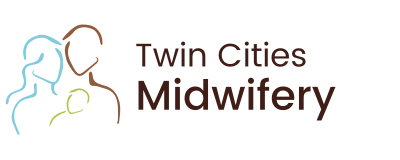30 Mar Cuddle Up to Oxytocin
Oxytocin is a hormone that is often called the “love hormone” or the “cuddle hormone”. It’s released by the pituitary gland in response to physical and emotional stimulation such as receiving a gift, hearing kind words, or positive physical touch from a loved one. This hormone plays an important role in labor and birth, the postpartum period, and breastfeeding. Oxytocin is released following hugs, back rubs, positive interactions with friends or family, and other “feel good” moments. It contributes to the feelings of love and happiness.
When it comes to birth, oxytocin is what stimulates the uterus to contract, the cervix to dilate, and labor to keep on moving forward. Many people are familiar with Pitocin, which is a synthetic form of oxytocin used to induce labor, augment a slowing labor or help the uterus contract and release the placenta after the birth. There are many factors that can affect a birthing person’s ability to release natural oxytocin. Many of these things are environmental. For example, the safer and more loved someone feels in their birthing space, the more oxytocin they will have. Research has also shown that melatonin (which is released in dim or dark lighting) works with the body to produce and release more oxytocin. Some things that can help to increase oxytocin in a labor setting can include playing favorite songs, dancing, receiving a massage, kissing your partner, talking about past positive experiences such as your wedding day or honeymoon, dimming the lights, and cuddling.
Oxytocin also plays a very important role in breastfeeding. It contributes to milk production, the let-down of milk during a nursing session, and helps breastfeeding parents to feel calm and bonded to their baby. Some people (especially those who have given birth multiple times) experience “afterpains” or cramps after the birth and these cramps are often strongest when breastfeeding. This is caused by oxytocin! The breast stimulation from nursing signals the brain to release oxytocin, which in turn releases milk in the breasts and also stimulates the uterus to contract down and continue moving toward its pre-pregnancy state. Pregnancy, birth, and postpartum all involve many hormones working in an intricate way. Oxytocin is just one of these hormones, but it’s an interesting and very important one.
Karen Strange, a birth professional, says: “Take an Oxytocin Moment. Oxytocin is released when you do anything pleasurable. This is especially important during gestation as the release of oxytocin helps baby’s brain become wired with a calm temperament and the capacity to self regulate emotional-state. This is the capacity to return to a calm and focused state after being excited (upset, hurt, angry). Oxytocin is what heals the body and helps prevent complications in the mother. Do this prenatally to establish a common, well worn “mental-groove”so that you will have the capacity to return to it after the birth. It is a great habit to get into for your health and to be in tune with your baby.”
Oxytocin plays an important role in many aspects of the childbearing year as well as general life for everyone. It helps us to feel relaxed, safe and at peace. So, go take an oxytocin moment; hug a loved one, call a friend, or snuggle a pet!




Sorry, the comment form is closed at this time.